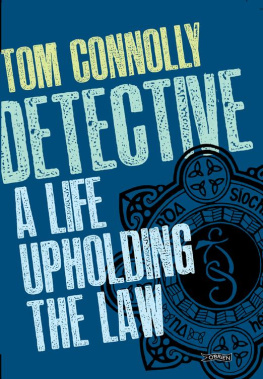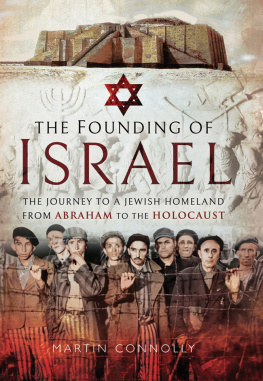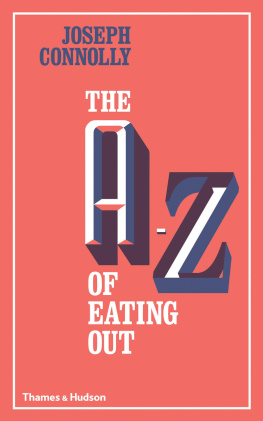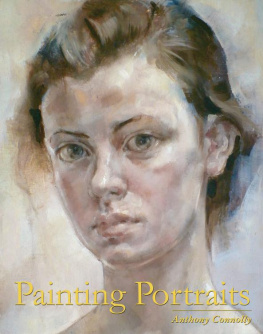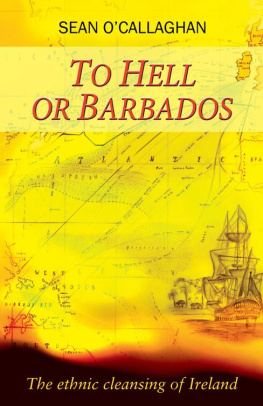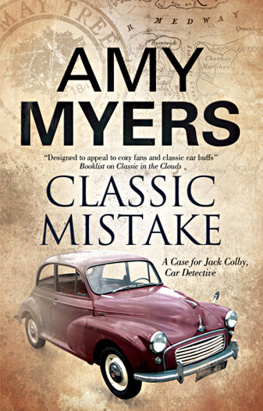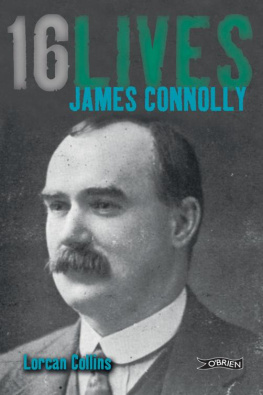I sincerely thank my ex-colleagues throughout the country for the assistance and support they gave me in compiling this account of various investigations I was involved in. A special word of thanks to the widows of John Morley and Henry Byrne, Frances and Anne, who shared with me their recollections and intense grief arising out of the murder of their husbands. To Derek Kelly, now the sole surviving occupant of the garda car of July 1980, for his recollection of events on the day and his trauma suffered as a result. To Jenny, my typist, for her efficient work and the professional manner in which she prepared all the material for presentation to the OBrien Press. I want to express my heartfelt gratitude to my fond friend, Teresa, for the many hours she spent editing the book before presentation to the publishers, and for the great support and encouragement she gave me throughout the whole process. Thanks to two other people that discussed with me their recollections of a memorable day in their lives many years ago.
Thanks to all my family and friends who encouraged and supported me along the way, and to The OBrien Press, especially Eoin, for his patience and his cooperation with me in dealing with some thorny problems.
Again, thank you everybody for your assistance and help, and I wish you and yours good health and happiness always.
In June of 1994, I retired from the Garda Sochna, with the rank of Detective Superintendent. At that time I was attached to the Investigation Section at Crime Branch in Garda Headquarters. I had served thirty-nine years, having joined in 1955. My father and grandfather were policemen, and my two sons and one of my daughters-in-law are serving Garda now, so you could say that police work is in my blood.
When I retired, I had no intention of writing my memoirs, or anything else for that matter. Colleagues, friends and acquaintances had urged me on occasion to do so, but I always gave them a very definitive no. One reason was that I would have to write about myself, which indeed I still have reservations about. Eventually, and for various reasons, I changed my mind, and set about writing my recollections and reminiscences. It has been an interesting journey, looking back through old case notes, court records and media reports. Some of it brings back hard memories, of the faces of bereaved and distraught families, of dealing with depraved and unscrupulous criminals, and of long, tense hours at crime scenes, in interrogation sessions and in courtrooms.
This book, I suppose, is also a sort of tribute to the work of the many thousands of brave men and women who have worked with the Garda Sochna, dedicating their working lives to keeping the rest of us safe. I hope this book will give the reader a window into the work of the Garda into how investigations are carried out, how evidence is gathered, how criminals are apprehended and how cases can be won or lost in Court.
Since my Garda career began in 1955, there have been many changes and advances in the technology used in policing, particularly in the field of forensics, with comparison microscopes and DNA profiling now providing concrete and indisputable evidence. However, the basics of crime investigation remain the same: diligent examination of the crime scene and interviewing of all persons in the immediate area of a crime, careful and thorough follow-up of every lead and thread of information, and impartial and cold assessment of known facts.
It has been an interesting and challenging career, full of ups and downs. I have met all manner of interesting, good, civic-spirited people, people who are willing to do their bit to keep society safe. I would recommend the work of a Garda to anyone seeking a life less ordinary.
MY FAMILY BACKGROUND
My grandfather, Patrick Connolly, was born in 1862 in Ballyfin, County Laois. He joined the RIC in 1882, and was stationed in Limerick. There he met my grandmother, Ellen Creagh, and they married in 1893. Ellen Creaghs father, John Creagh, was also in the RIC. A native of Cork, his first station was Waterford, and then he was transferred to Limerick. His father, John Creagh, was also in the RIC. As Ellen Creagh was from Limerick, when my grandfather married her he was transferred out of Limerick to Scariff in County Clare, where my father was born in February 1901.
My fathers first job was as a telegram boy, delivering telegrams by bicycle. He then became a fireman on the railway, operating out of Limerick. He married my mother, Kate Minogue, from Ballintotty, Nenagh, in September 1921. I believe they met while my mother was working in a bar near the railway station in Nenagh.
My dad joined the Garda Sochna in November 1922. I can see by his application form that he was two years in the IRA, so that must have looked well at that time on application forms to join the Garda. His first station was Enniscorthy, County Wexford, in February 1923. He was a member of the first station party to arrive in Enniscorthy. After some time there, he became the Superintendents clerk.
The first born in the family was Eileen; she died at a very young age, and was buried on her fifth birthday. She died in the married quarters attached to the Garda Station in Enniscorthy in April 1927. My dad was transferred from Enniscorthy to Charleville in June of 1934, and the family arrived there with six children: Kitty, Paddy, Molly, Nancy, Jimmy and John. I was the first member of the family to be born in County Cork. I was born in Newline, Charleville, in August 1934. We soon moved to Prospect Lodge, The Turrets, in Charleville.
My first real memory of Charleville is my brother John cutting off the top of my finger, the middle finger of my left hand, with a hatchet, when I was about five years old. Im sure it wasnt intentional. Our house in Prospect Lodge was single storeyed, with a tiled floor, three bedrooms, a pantry and a dry toilet out in the garden.
My mother, God rest her, was a great provider, with a lot to do and a lot to look after. We had very little growing up really, but we survived and I think we were all the better for not having too much. My dad had a bicycle, and he was very careful with it, because it was essential for his work. We were always trying to have a go on it, but wed have broken it up on him.
I remember some of my younger sisters being put into a tea chest in the kitchen. Once they were able to walk, to keep them out of trouble, theyd be put into the tea chest, where they could hop up and down and shout and scream. I think every one of us went through the tea chest in our time, and we all did the roaring and shouting too.
My brothers Paddy and Jimmy were great lads for hunting rabbits. They would catch them as well as hunt them, and they very often put food on the table for us. Paddy got a greyhound named Nora, from where I dont know, which was wonderful for catching rabbits. There was great affection for this greyhound, and we still talk about it.
Paddy used to set snares for rabbits, and one day I made a snare myself. I made it from a piece of netted wire, cut with a pliers to about a foot or so long, and straightened by pulling it back and forth over a railing. Down the field was a gateway and I could see a track under the bottom rail of the gate where I took it that rabbits would go through. I set my snare there, and I went back to it some time the next day. There was a rabbit in the snare, and it looked like he was just sitting down with his head resting on the bottom rail. I went over to him, and he was dead. I was terribly sorry that I had killed the rabbit, but anyway I took him out and brought him up to my mam, and of course she was delighted. To this day, any time I see a rabbit, I think of the rabbit that I killed. But Im sure I ate part of it myself without any problem.

